16-feet tall bronze statue installed near Basavanagudi Park in Hebbal
By Mohan Kayaka
Mysore/Mysuru: Wrestlers in action, sealed in the form of a statue, is all set to be the new attraction of the City of Palaces Mysuru, which is known for traditional wrestling (kusti) that once enjoyed royal patronage.
The statue made of bronze has been installed near Basavanagudi Park, beside the Circle by the same name at Hebbal in Ward No.4. It is a mark of tribute to the wrestlers and the masters who teach the nuances to their disciples. The statue will be unveiled soon, as wrestling continues to enjoy a prime place among ancient sports since the early days of Olympics.
Wrestling also has a mythological significance, as it is believed that in epic Ramayana, Lord Hanuman, Vaali and Sugreeva were also wrestlers of repute. There is a reference in another epic Mahabharata about the fight between Bheema and Jarasandha, which is considered as memorable till date.
The credit for the statue installation goes to former Corporator Pailwan Srinivas, also a wrestler, who infused life to his concept, utilising Mysuru City Corporation’s (MCC) fund of Rs.37 lakh. The statue is 16-feet tall from the ground level, with eight feet wrestling arena forming the pedestal. A pair of wrestlers in bout forms the main part of additional eight feet, totalling 16-feet tall statue, that enhances visual aesthetics of the park.
“Sculpted by Anil, a city-based artist, the design was finalised after rummaging through hundreds of photos of various wrestling bouts. Moreover, it was my long cherished dream to build a statue for wrestlers, if voted by the people. Before proceeding with the plan, I toured several parts of North Karnataka (which is also known for wrestling), but found only two statues of smaller size. Hence this statue of Hebbal can be called as the biggest and first in the State,” said Pailwan Srinivas, who rued over rarely finding one wrestler among a population of 20,000 to 30,000 each, evincing interest in becoming a wrestler.
Each wrestler replica in the statue weighs 400-kg and have been installed by taking all the precautions against rain and gale. The iron grills have been installed around the statue, as a safety measure, he said.
Colourful lights are fixed around the statue to attract people during night hours too. A multitude of light rays focusing the statue is sure to give a different look amid the dark enveloped greenery in the park, he added.
For record, a plaque with a brief information in Kannada on wrestling is also installed on the left side of the statue. It reads as follows: Wrestling which exists since ancient days was included in Olympics in 708 BC. It holds a significant place in Dasara and the traditional arena made of red mud is called as ‘akhada’. The wrestlers place of practice is called ‘Garadi Mane’. It is one sport that strengthens respect towards Guru, unlike any other form of sports. The disciple still falls at the feet of his guru, which continues to be in practice.
This statue is sure to be the main attraction of Hebbal after the Welcome Arch that greets the visitors with the slogan Hebbalina Hebbagilu (Big door of Hebbal). Along with the statue, Basavanagudi Park, which boasts of a Yoga Mantapa, heritage lamp posts and the bust of previous pontiff of Adichunchanagiri Mutt, Sri Balagangadharanatha Swamiji, is also a favourite among morning walkers.
Speaking to Star of Mysore, Srinivas said “Wrestling that has its roots in princely rule should survive. The red mud is considered healthy and also helps in keeping certain skin infections at bay. Children nowadays are spending a lot of time only in studies and some other activities. If they develop a passion for sports along with studies, they will be physically and mentally strong. The statue of wrestlers has been installed so that the younger generation will remember this traditional sport as every house had a wrestler some years ago.”
Citing his own example, Srinivas said “I was initiated into wrestling at the age of 16 and have the pride of participating in Nada Kusti and State-level tournaments. Manchegowdana Koppal, Kumbarakoppal and other villages in Hebbal area still have Garadi Manes. Even there are Garadi Manes in other parts of the city and some have been replaced with new structures. Wish that the number of such Garadi Manes increases along with those taking interest in learning this traditional art that was patronised by Wadiyars.”



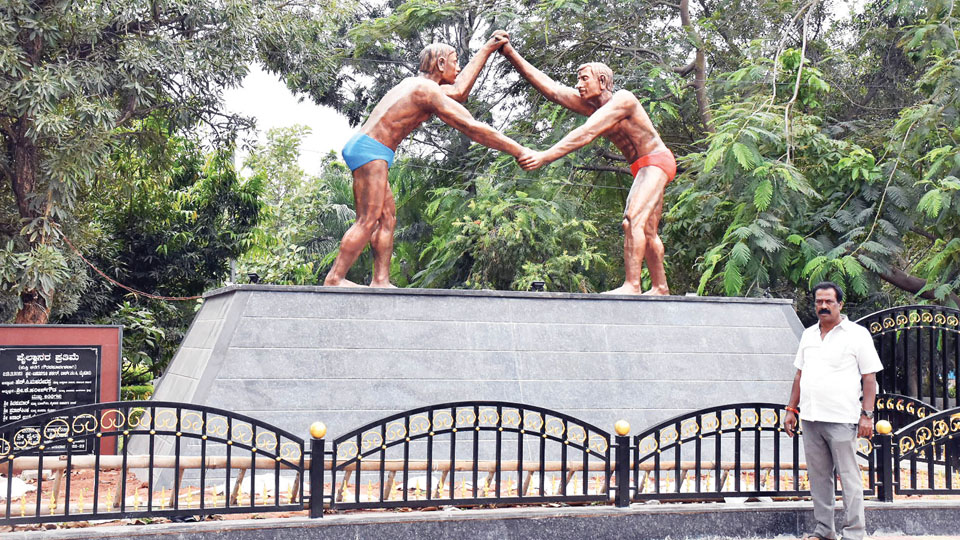
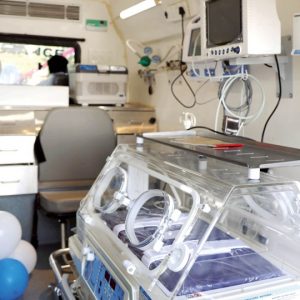
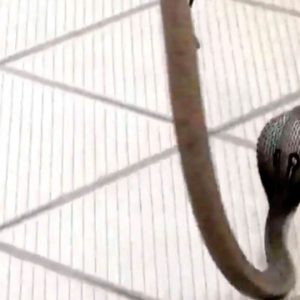
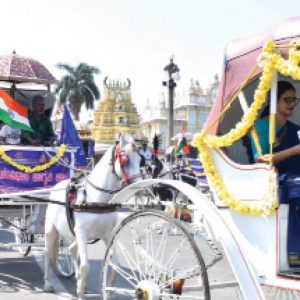
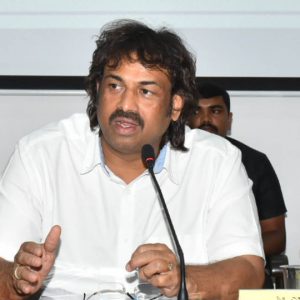
Recent Comments